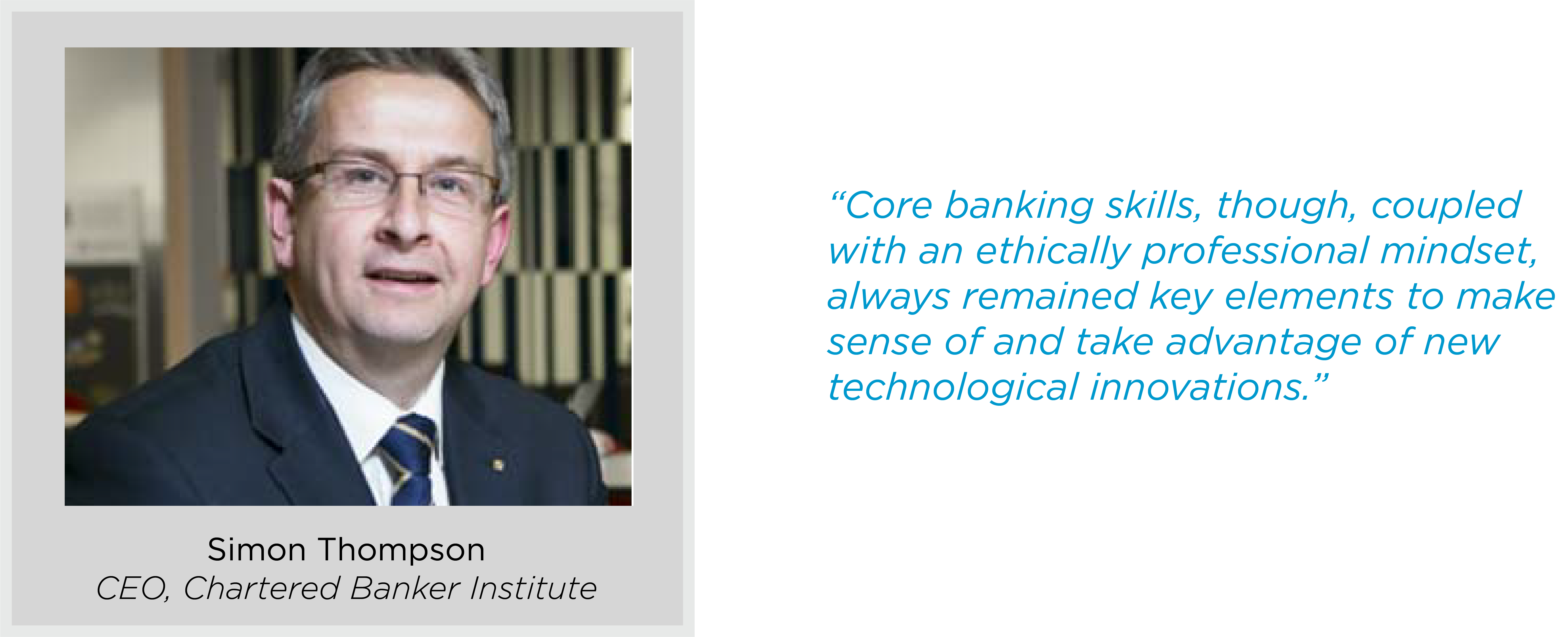There’s no doubt the Australian digital retail banking strategy has been on fast forward as a result of the pandemic.
Traditional retail banks have had to close thousands of branches during lockdowns and pivot to a WFH model along with the rest of the country.
Staff have been reassigned to ensure call centres that have been deluged by customers with questions about everything from home loan deferrals to mortgage applications, credit card applications to common admin questions.
Though many of those calls would have inevitably been routed through the virtual banker chatbots that handle the vast majority of the first interactions with a retail bank these days.
In 2021, the willingness of most customers to interact with Ceba - or whatever the name the Artificial Intelligence-driven bot is given - suggests the digital-first retail banking strategy that was already a driving factor for financial services is now accelerating as fast as these machines can learn.
Given the fact the natural language processing arm of Artificial Intelligence means they can recognise hundreds of thousands of ways of asking the same question within a year, that’s pretty quick.
When CBA’s digital innovation arm launched Ceba in 2018, it was expected that by the end of the first year that it would understand 500,000 different ways customers might ask for 500 different banking products.
Improving Retail Banking
At the same time, CUA (now Great Southern Bank) set up ROSIE to deal with 500,000 members of Australia's largest credit union that provides financial, health, and insurance offerings, insisting it would never replace the strong customer service skills brought to play by human interaction - a sentiment echoed across the retail banking industry.
“Consumers are becoming more financially and technologically savvy, and there is an ever-increasing number that prefer the convenience and accessibility of a digital sales channel,” said CUA’s Philip Fraser said at the time.
“ROSIE has the ability to cater directly to this growing market while also supplementing our personalised interactions with members, managing many of the most common health insurance inquiries.
“This channel is certainly not a replacement for our human service team – it provides a huge opportunity to grow our health member base by lifting the number of quote requests that are followed all the way through to taking out a policy.”
While ROSIE had a name change, the people-first policy towards customer service remained the same, as CUA chair Nigel Ampherlaw explained of its AI implementation - adding that the organisation looked into AI and “concluded we had to spend 18 months to become a better bank and beyond that, better than a bank.
“We came up with the ethos that you put people before profits,” he said highlighting a focus on customer loyalty.
“When it came to AI robotics, we had two guiding principles. On the customer side, any robotics we did was to enhance the quality of human interaction, not replace it.”
It was not a licence to cut costs.
The growth of chatbots since then has been exponential, according to research from Cornerstone Advisors.
Heading into 2020, just 4% of mid-size banks and credit unions had deployed a chatbot.
By the end of the year, that percentage had more than tripled to 13%.
Another 16% intended to invest in chatbots in 2021.
But the research also showed the need for human bankers on the end of the phone or in a traditional bank, with 86% of consumers saying they preferred to interact with a human agent.
Another 71% of consumers said they would be less likely to use a brand if it didn’t have human customer service representatives available.
Though with seismic disruption of retail by online providers showing the way forward - highlighted by the way Amazon led to the demise of Blockbuster - it’s not surprising to see customers swayed by, and happy with, digital interactions.
Another study found that 74% of consumers prefer chatbots while looking for answers to simple questions.
While the roll-out of Open Banking - giving customers access to their own data and an ability to move more easily between ADIs - is slower than in the UK and Europe it is catching up in Australia.
That a price comparison fintech like Finder is one of more than 50 to be accredited to be a data recipient of retail bank analytics, shows the extent to which Open Banking will disrupt financial services.
Co-founder Fred Schebesta, whose app has 155,000 users, said Australian Competition & Consumer Commission accreditation will help win the trust of retail bank customers as it helps people optimise their finances.
“Knowledge is power and empowering people to make better decisions by combining their data with the data we have on products and deals and credit scores will help customers make better decisions on money and life,” he said.
“Imagine Artificial Intelligence looking at your finances – your bills, your investments, your energy use, your travel – and moving money around, optimised for saving and making money.
“Financial advice is changing and I think people are becoming their own financial advisers by empowering themselves.”

With Amazon, Facebook, Apple and Google circling the banking sector over the past decade, it’s clear the BigTech players could have a fundamental impact on financial services. Superior data analytics capability and mastery of customer engagement, especially via social media, would see them pushing on an open-door when it comes to customer acquisition.
The fact that Google has a Next Billion Users (NBU) division - created in 2015 to reach customers in emerging markets where digital infrastructure was either underdeveloped, costly, or inaccessible to poor and vulnerable people - is testimony to the impact digital channels can have on financial institutions.
The 2021 World Retail Banking Report noted that the Google Pay digital wallet platform and online payment system originally launched in India had extended to Australia, Canada, Japan, Russia, Singapore, Ukraine, the UK, and the United States.
In fact, 92 Australian retail banks, credit unions and BNPL providers offer Google Pay as consumers demand the ability to pay for retail using their phone rather than digging in a wallet for cash and cards.
Taking those findings from above about customers happy to deal with chatbots one step further and noting that most people these days do simple balance checks via mobile banking - especially as the bank branch network has in a large part been closed due to the pandemic - it is clear the adoption of digital banking is only moving in one direction.
So what does this mean for a career in retail banking?
Chartered Banker Institute CEO Simon Thompson said in an interview with FINSIA’s InFinance that those sounding the digital-driven death knell on professionalism were way off the mark.
The head of FINSIA’s partner organisation played down claims that there was no place for professionalism in an Artificial Intelligence-powered online banking system and highlighted how banking had adapted many times before.
“While some argue that professionalism and professional bankers will have no place in a digital-banking future, I disagree,” he said, insisting customer trust needed to be restored before the wholesale adaptation of digital-only platforms.
“Similar debates were held when mainframe computers and ATMs entered banking in the 1960s and 70s, when many aspects of wholesale banking and trading became automated in the 1980s and 90s, and most recently when the dotcom boom in the 2000s led to the rapid growth of internet banking.
“In each situation, banks and bankers had to acquire new knowledge and skills, and in doing so, develop their own personal capabilities as well as further their career prospects.
“Core banking skills, though, coupled with an ethically professional mindset, always remained key elements to make sense of and take advantage of new technological innovations.”
While he accepts that there are detailed technical skills needed to build apps and interfaces used by customers, they need to be shaped by bankers.
“There are important skills around how you can shape effective customer journeys and provide customers with the support they need.
“There's the technical banking knowledge you need to build banking software and banking solutions.
“There've been many examples where banking software has had to be re-designed because bankers weren't involved at an early stage and the coders, why would they, don't understand banking?
“And the app or software has not been compliant or just not able to support consumers.”

He acknowledged that there was an increasing move to digital banking platforms as a result of COVID-19.
But he believes the economic impact of the pandemic will result on retail bankers needing to deal with much more complex problems that fall outside what an app can provide.
“One of the impacts I see of the current pandemic is more customers moving to the digital channels and banks accelerating the roll-out of digital channels,” he said.
“Where that's supporting simple product and straightforward customer journeys, that makes a lot of sense.
“But unfortunately we're going to have to support many individuals and businesses with very difficult and challenging circumstances and very complex financial needs.
“We're already seeing the evidence in the UK where we are facing much higher demands on traditional channels or even modern channels such as Web Chat - particularly people wanting to speak to somebody who can help them.
“Despite all the promises, AI chatbots cannot help people with very complex, financial problems.
“Very difficult situations require a combination of core technical banking skills and a broad understanding across areas of banking combined with great customer focus and customer service.
“Empathy and great interpersonal skills that has been acquired as an experienced expert professional are needed in situations like these where they can provide genuine advice, guidance and reassurance.
“That's why we're seeing more interest than ever in banks putting people through qualifications that can help with that.”
“Although I can see a future for banking where perhaps there are fewer people employed in banking than there are now in many, if not all countries, because of further digital adoption, I think that there will still be very large numbers of colleagues who will remain.
“And they'll be much more highly skilled, whether that's the retail side, whether that's the corporate side and at all levels, whether that's people in the frontline supporting customers or whether it's people at the very top thinking about how banking strategies, activities and operations develop a different culture.
“I think also regulatory expectations play a role too, with ever-increasing regulatory expectations around supporting vulnerable customers, treating customers fairly, ensuring there's a broad skillset at the top of the institutions.
“I know that part of the reason that the fintech banks want to have Chartered Bankers on their boards is because of the rounded expert knowledge it's also because of regulatory expectations for that rounded expert knowledge.”
It’s also clear that the AI-side of retail banking needs a little mentoring, judging by a recent email from one of the UK’s first telephone-only banks offering prizes to customers who agreed to share their spending habits.
While the message to customers said it would help them “unlock useful tools and tips to … make the most of money”, the fact that the prize was extra guidance from a neuroscientist who had been working with the bank for a year suggested it has as much to do with analytics and metrics as customer satisfaction.
Core banking skills are vital to retail banking strategy.

Long-time FINSIA member Matt Baxby, who became the global CEO of $5.5bn fintech Revolut at the start of the pandemic, is in agreement with Thompson when it comes retail bank strategy.
Those running fintechs need to have the right complement of talent with core banking skills.
“It's really important,” he says.
“Having been in the global role, what we go looking for in CEOs of new expansion markets as we bring them on is they need to have the right financial services credentials.
“They need to be credible with regulators. They need to understand, deeply, capital liquidity and compliance and three lines of defence and all the foundations of banking.
“The reality is, while we’re more technology oriented, we're also working in a sector that's probably the most regulated of all.
“And if we don't get that right, customers can be put in harm's way. And, overall, the business progression can be slowed down.
“So, definitely, Revolut wants those skills.
“I guess the secret sauce is blending that with people who have experience in technology or challenger environments, or turnarounds, because Revolut does work at a very different pace.”
Qualified lawyer Matt, who joined FINSIA forerunner the Securities Institute of Australia in 2001 and a passionate supporter of professionalism, added: “It served me really well as my career developed in the financial services sector.
“That’s the important role FINSIA has to play - the professionalisation of banking.
“It’s the reason I did the Chartered Banker. It's so well credentialed in the UK and carries real weight. And my hope is that we see that momentum continue to build in Australia.”
Nikesh Lalchandani, Chartered Banker, F FIN - who is a former CBA executive in payments, technology and innovation, and currently works in establishing Neo Banks and start-up fintech organisations - is another who is adamant that professional savviness is still required to work in the sector.
“In the coming era, I tell people technology is not a profession,” he says.
“It is a tool that can help you with any profession. In financial services, a deep understanding of how the system works, from operations to risk and just general commercial savviness is an invaluable asset to any fintech.
“Becoming a Chartered Banker is a recognition of that savviness: that you have that big-picture exposure to the world of financial services, and a deep understanding of the ethics and risks associated with the practice of banking.”
As the author of Payments and Banking in Australia: From coins to cryptocurrency, how it started, how it works and how it may be disrupted, it’s perhaps prudent to take his advice.
Senior Fellow Sean O’Donnell is another working on the tech side of financial services as Global Markets Executive at IBM who believes in the importance of the core banking skills of ethical professionalism.
He said: “I work for IBM these days but I work with banks, and the reason I did the Chartered Banker by Experience program was because I felt that if I'm going to advise banks on how to apply emerging technology then I needed to do that from the position of having the highest professional recognition as a banker.
“From a credibility perspective, I thought that the Chartered Banker was just something that needed to be done. And I'm much better off for having done it.”
Further reading:
Senior Fellow on FINSIA's important role raising standards
Don’t sound a digital-driven death-knell to professionalism just yet
Core banking skills still vital for fintechs, Revolut chief says
Learn more about our Chartered Banker qualification.









